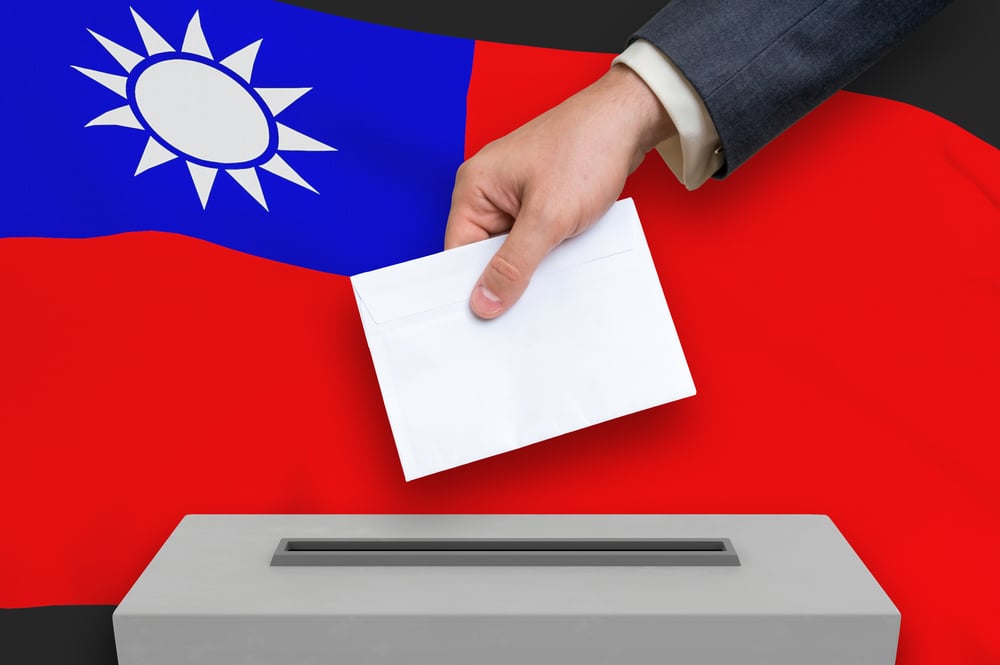Talk the last few weeks in the corporate press about Taiwan is that the Democratic Progressive Party (DPP) has the coming January presidential election in the bag.
They are probably right.
The opposition parties, the Kuomintang (KMT) and smaller Taiwan People’s Party (TPP), recently failed to coalesce behind a single candidate, so the DPP’s William Lai is almost certain to win. A self-described “practical worker for Taiwan independence,” Lai, the current vice president to the exiting Tsai Ing-wen, has chosen former envoy to the United States Hsiao Bi-khim as his running mate, completing the most pro-independence ticket yet in the government’s history—with Bi-khim described as an “independence die-hard.”
However, this is not to say, as the corporate press are sure to in the days and weeks following the election, that this was a clear vote in favor of the independence line by the ordinary residents of the de facto self-governing island.
The truth is that the overwhelming majority of Taiwanese simply want things to remain the way they are, with Taiwan maintaining its de facto independence and never saying another word about it. According to a 2021 report by the Global Taiwan Institute, the number supporting an outright declaration of independence are as few as 5% of the population. Hence, in an effort to calm feelings of unease, Lai has recently taken to repeating a formula he and the DPP have increasingly assumed: “We mut abide by the truth—which is what I mean by pragmatism—which is Taiwan is already a sovereign, independent country called the Republic of China. It is not part of the People’s Republic of China.”
While this may be “pragmatic” in a day-to-day sense, as far as his or anyone else’s conducting of the daily business on the island, it cannot be accepted by American policymakers. For American policymakers and commentators to begin parroting this line would be in direct contradiction to the foundational formula worked out during the Richard Nixon administration, promulgated by the First Sino-American Joint Communique: that there is but one China, that Taiwan is a part of it, and that its legitimate government is located in Beijing.
Given this, it is hardly surprising to find that Beijing is not Lai’s biggest fan. After Lai’s trip this past fall to the United States, which Beijing views as a violation of the terms of the Second Communique, the joint Sino-American statement the Jimmy Carter administration signed to finally normalize relations in 1979, China’s foreign ministry issued a statement calling him a “troublemaker through and through,” saying that “Lai stubbornly adheres to the separatist position of Taiwan independence.” At the same time, Beijing also lodged what has become the rote formulation that accompanies such visits: that China opposes any form of visit by “Taiwan independence separatists” to the United States.
It’s been the modus operandi of Washington and its loyal corporate press mouthpieces to write off complaints by powerful and concerned rival states. But as evidenced in Eastern Europe, this trivialization can have severe consequences.
These high-level diplomatic visits are frowned upon by Beijing, and by any neutral reading of the Communiques they are clearly against the spirit if not the direct letter of those foundational joint-statements. These visits are quickly becoming yet another domestic political football, and therefore, should strike even the most usually imperturbable as irresponsible in the extreme. Readers will recall former Speaker of the U.S. House Kevin McCarthy just this past year falling all over himself trying to show he was as tough as Nancy Pelosi after she visited Taiwan, an embroglio itself stemming in no small part from the growing influence of the Taiwan Lobby.
Like increased weapons sales and American troops being placed on the island, these leader-level visits do not increase American security or prosperity. And when the new (old) DPP administration is sworn in next year in Taipei, both Lai and those in Washington would do well to ignore the most hawkish and foolish on either side, the only ones who want to disturb the status quo.
It has held so far, and there is every reason to believe it can continue to do so if level heads prevail.

































